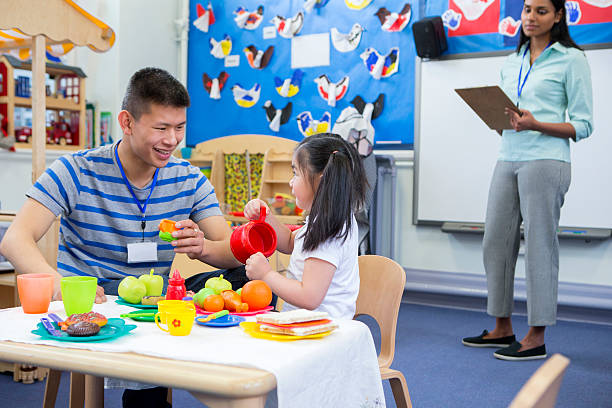Considering the current society of screens and structured activities, imagination is something completely different. Nevertheless, the agreement of experts is that creative play surely helps with developing children and effects which exceed reasonable limits utilitarian character. The fact is, pretend play does have more to offer than just the fun factor and helpful ideas of why it should be encouraged are:
Stimulates Creativity and Imagination
Pretend play is a territory in which children can pretend that they have various roles around them and thus show their creative side. Depending on whether they’re pretending to be pirates searching for treasure or throwing their stuffed animals at a tea party, children utilise fantasy and make fictitious worlds. Such imaginative play promotes creativity in that children are taken out of the shell and able to view issues differently therefore come up with outside box ideas.
Develops Language and Communication Skills
By means of pretend play, children are motivated to use language since they tell their stories with words and that e. Especially is when children act out scenarios involving limited presence such as interacting-with imaginary characters or agree upon authoritative relations between themselves another person’s role in the game One way or another one has two options which can be used for negotiation through a dialogue The process thus assists children gaining and refining their language abilities meanwhile broadening their vocabulary, giving them opportunities to talk unambiguously. Moreover, the role play instructs children how they should listen and wait for their turn to speak in the conversation – listening turns most necessary for communicative behaviour.
Enhances Social and Emotional Development
Pretending gives kids time to create various states and partake in imaginativeness. Indeed, playing out doctor, teacher or even a firefighter the new generation worships and acquires skills to comprehend and sympathise with other people’s thoughts. Pretend play also helps the children learn some social skills like sharing, cooperation and conflict resolution. By engaging in imaginative roleplay, children gain a better understanding of what is considered normal and appropriate social behaviour which sets the basis for healthy relationships during adulthood.
Encourages Problem-Solving and Critical Thinking
Pretend play offers themes and dilemmas within an imaginary world that require symbolic, divergent thinking; in addition children need to be able to problem solve. In whatever they do, regardless of whether it be building a pillow fort or preparing an imaginary picnic children should manipulate their imagination to go beyond the limitations set on nature and make what was impossible—possible. Through this process children learn the essential cognitive skills of planning, decision-making and flexible thinking which critically lay a firm foundation for schooling success in life beyond that.
Promotes Emotional Regulation and Coping Skills
Through pretend play, the children can express their quests and ambitions; they get an opportunity to show feelings with no consequences of scolding. For instance, even when they’re pretending to do something from their favourite story or playing out a demanding situation for role-playing purposes both children can certainly illustrate how to handle it in healthy ways. During this make-believe play, children acquire emotional regulation skills and learn to recognize as well come up with different ways in which their emotions can be expressed. Resilience is also acquired through these activities that simulate what reality brings around a child’s life at large.
Fosters Parent-Child Bonding
Pretend play helps the parents know their children better. When parents participate in an imaginary world of their child, the bond between them is tightened up and communication becomes better. Besides, there are more opportunities to create memories together. Participation in the make-believe game by parents adds chances to observe a child’s hobbies, abilities and specific issues that should be developed.
Pretend Play Toys
One of the best ways to help the kids in this pretend play is by getting them toys based on several themes like grocery pretend toys for kids or construction themed toys for kids and more. These toys and the props, give them an extended vision to their pretend play and will help them develop more stories around it. It also teaches them a lot about colours, shapes and stories of the props they are using. If you are looking for well curated pretend toys sets like the grocery pretend toys, or puzzles or any other skill development game, then check out Skillmatis for some good options.
The advantages of social play are far more than simply entertainment. Imaginative play touches all aspects of children’s development; it enhances their creativity and imagination, social relations, emotional well-being as also cognitive abilities. The importance of pretend play experiences should not be underestimated, especially by parents and those working with children. While playing in this way is a chance for exploration, growth and development the educators must encourage them to continue such activities because they are valuable learning tools in life. And therefore let us use the power of pretend play and set our kids free from limitations of their imagery.









